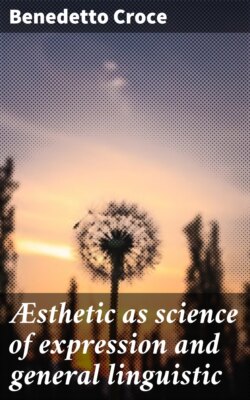Читать книгу Æsthetic as science of expression and general linguistic - Benedetto Croce - Страница 12
На сайте Литреса книга снята с продажи.
III ART AND PHILOSOPHY
ОглавлениеInseparability of intellectual from intuitive knowledge.
The two forms of knowledge, æsthetic and intellectual or conceptual, are indeed different, but this does not altogether amount to separation and disjunction, as of two forces each pulling in its own direction. If we have shown that the æsthetic form is altogether independent of the intellectual and suffices to itself without external support, we have not said that the intellectual can stand without the æsthetic. To describe the independence as reciprocal would not be true.
What is knowledge by concepts? It is knowledge of the relations of things, and things are intuitions. Concepts are not possible without intuitions, just as intuition is itself impossible without the matter of impressions. Intuitions are: this river, this lake, this brook, this rain, this glass of water; the concept is: water, not this or that appearance and particular example of water, but water in general, in whatever time or place it be realized; the material of infinite intuitions, but of one single constant concept.
But the concept, the universal, if it be no longer intuition in one respect, is intuition in another respect, and cannot fail of being intuition. The man who thinks has impressions and emotions, in so far as he thinks. His impression and emotion will be not love or hate, not the passion of the man who is not a philosopher, not hate or love for certain objects and individuals, but the effort of his thought itself, with the pain and the joy, the love and the hate joined to it. This effort cannot but assume an intuitive form, in becoming objective to the spirit. To speak is not to think logically; but to think logically is also to speak.
